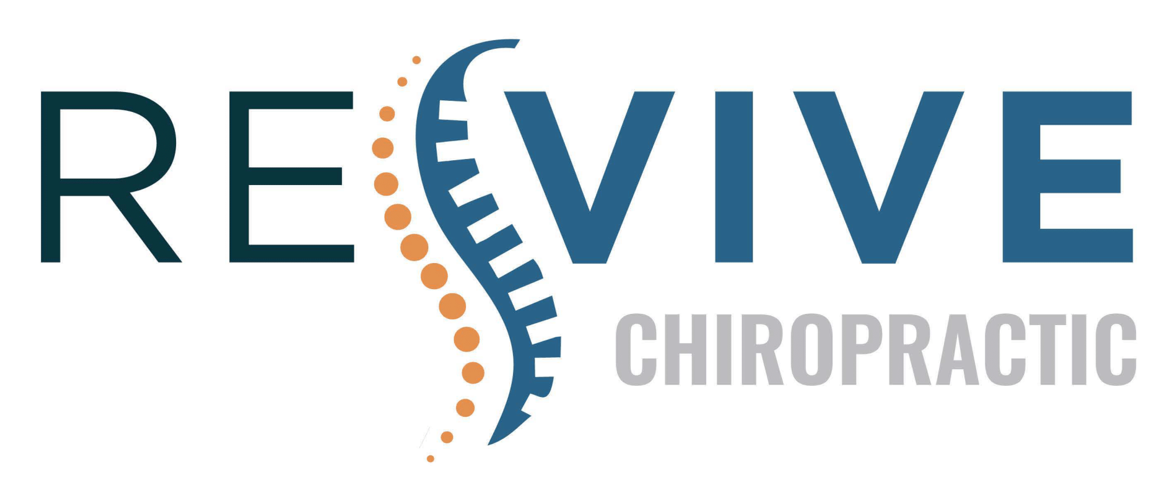You might find yourself overwhelmed by stress at times, and it's crucial to recognize how relaxation techniques can provide significant relief. Techniques like deep breathing, yoga, and meditation can not only calm your mind but also improve your physical health. As you explore these methods, you'll discover various benefits that extend beyond mere tranquility. But what specific strategies can you implement in your daily life to experience these advantages fully?
Understanding Stress and Its Impact
Stress affects nearly 80% of adults at some point in their lives, and understanding its impact is fundamental for effective management. When you experience stress, your body reacts in ways that can affect both your mental and physical health. It triggers the release of hormones like cortisol and adrenaline, which prepare you for a fight-or-flight response.
While this reaction can be beneficial in short bursts, chronic stress can lead to serious health issues, including anxiety, depression, heart disease, and digestive problems.
You mightn't realize how stress manifests in your life. It could show up as irritability, fatigue, or difficulty concentrating. You may notice physical symptoms like headaches, muscle tension, or a racing heart. These signs are your body's way of signaling that something needs attention. Ignoring stress can result in a cycle of ongoing tension that exacerbates the problem.
It's important to recognize your stressors, whether they stem from work, relationships, or personal expectations. By identifying what's causing your stress, you can take steps to address it.
You can also benefit from adopting a proactive approach to stress management, which includes establishing healthy boundaries, practicing time management, or engaging in physical activity.
Understanding how stress affects you personally allows you to take control. The more aware you're of its impact, the better equipped you'll be to manage it effectively and maintain your overall well-being.
Benefits of Relaxation Techniques
Relaxation techniques can greatly boost your physical health and enhance your mental clarity.
By incorporating these practices into your routine, you might notice improved energy levels and sharper focus.
It's time to explore how these benefits can transform your overall well-being.
Physical Health Improvements
Practicing relaxation techniques can lead to important improvements in your physical health. When you incorporate methods like deep breathing, meditation, or yoga into your routine, you'll likely notice a decrease in muscle tension and pain. This is because these techniques help your body release built-up stress, allowing your muscles to relax and recover.
Moreover, relaxation techniques can enhance your cardiovascular health. By lowering your heart rate and blood pressure, you reduce the risk of heart disease and other related conditions. You might also experience improved digestion, as relaxation can stimulate your digestive system, helping alleviate issues like bloating or indigestion.
Additionally, quality sleep is essential for physical health, and relaxation techniques can greatly improve your sleep patterns. When you calm your mind before bed, you're more likely to fall asleep faster and enjoy deeper, restorative sleep.
Finally, regular practice of relaxation techniques can boost your immune system. Lower stress levels support your body's ability to fight off illness, making you less susceptible to colds and infections.
Embracing these techniques won't only enhance your overall well-being but also empower you to better manage life's challenges.
Mental Clarity Enhancement
How can relaxation techniques sharpen your mental clarity? When you take time to unwind, you give your mind the space to reset and refocus. It's essential for enhancing your cognitive abilities and making better decisions.
Here are three ways relaxation techniques can boost your mental clarity:
- Reduced Stress: By lowering stress levels, you free your mind from distractions. This clarity helps you think more clearly and creatively, leading to better problem-solving.
- Improved Focus: Techniques like meditation or deep breathing encourage mindfulness. This practice sharpens your attention span, allowing you to concentrate on tasks without getting easily sidetracked.
- Enhanced Memory: Relaxation techniques can improve your memory retention. When your mind isn't cluttered with stress, you're more likely to recall important information and connect ideas more effectively.
Incorporating relaxation techniques into your daily routine can greatly enhance your mental clarity.
Whether it's a few minutes of deep breathing or a longer meditation session, you'll find that a calm mind leads to sharper thinking and more effective decision-making.
Deep Breathing Exercises
Often, you might underestimate the power of deep breathing exercises in managing stress. However, these simple techniques can greatly reduce anxiety, improve your focus, and enhance your overall well-being. When you're feeling overwhelmed, taking a moment to engage in deep breathing can ground you and bring about a sense of calm.
To practice deep breathing, find a comfortable position, either sitting or lying down. Close your eyes and take a slow, deep breath in through your nose, allowing your abdomen to expand fully. Hold that breath for a few seconds, then exhale slowly through your mouth. Aim to make your exhale longer than your inhale. This technique not only helps to increase oxygen flow but also activates your body's relaxation response.
You can practice deep breathing anywhere—whether you're at work, home, or even in a crowded space. Just a few minutes can make a noticeable difference in how you feel. If you find your mind wandering, gently bring your focus back to your breath without judgment.
To enhance the benefits, try incorporating deep breathing into your daily routine. Set aside a few minutes each morning or evening to connect with your breath. You might also use it as a quick reset during stressful moments throughout your day.
Meditation Practices
Meditation practices can greatly enhance your stress relief journey.
By exploring mindfulness techniques, guided visualization, and breathing exercises, you can find what resonates best with you.
Let's uncover how these methods can help you achieve a calmer, more centered state of mind.
Mindfulness Meditation Techniques
Many people find mindfulness meditation techniques to be a powerful way to reduce stress and enhance overall well-being.
By focusing on the present moment, you can cultivate a sense of calm and clarity in your life. Here are three simple mindfulness meditation techniques you can try:
- Breath Awareness: Take a few moments to sit comfortably. Close your eyes and focus on your breath. Notice the sensation of the air entering and leaving your body. If your mind wanders, gently bring your attention back to your breath.
- Body Scan: Lie down or sit in a comfortable position. Close your eyes and mentally scan your body from head to toe. Notice any tension or discomfort, and consciously relax those areas. This helps you connect with your physical self and release stress.
- Mindful Walking: Find a quiet place to walk slowly. Pay attention to each step, the feeling of your feet touching the ground, and the rhythm of your breath. This practice grounds you in the present moment and can be very invigorating.
Incorporating these techniques into your daily routine can greatly enhance your stress relief efforts.
Guided Visualization Benefits
During moments of stress, guided visualization can be an effective tool for relaxation and mental clarity. This technique involves creating mental images that transport you to a peaceful place, allowing your mind to escape the pressures of daily life. You might imagine a serene beach, a tranquil forest, or any setting that brings you comfort.
As you engage in this practice, you'll likely notice a significant reduction in your stress levels. Guided visualization helps shift your focus away from stressors and fosters a sense of calm. You're not just daydreaming; you're actively engaging your senses, deepening your relaxation experience.
Moreover, this technique can enhance your emotional resilience. By regularly visualizing positive scenarios, you train your brain to respond more calmly to stress. It's like giving yourself a mental rehearsal for overcoming challenges.
Incorporating guided visualization into your routine can also improve your concentration and creativity. When you clear your mind of clutter, you create space for new ideas and solutions.
Ultimately, guided visualization is a powerful tool that can lead to profound relaxation and clarity in your life. Give it a try, and you might be surprised at how quickly you feel the benefits.
Breathing Exercises Overview
Breathing exercises are another powerful method for managing stress and promoting relaxation. They help you focus on your breath, allowing you to center your thoughts and calm your mind.
By incorporating these techniques into your daily routine, you can considerably reduce anxiety and improve your overall well-being. Here are three effective breathing exercises to try:
- Diaphragmatic Breathing: Sit or lie down comfortably. Place one hand on your chest and the other on your abdomen. Inhale deeply through your nose, ensuring your abdomen rises while your chest remains still. Exhale slowly through your mouth. Repeat for 5-10 minutes.
- 4-7-8 Breathing: Inhale through your nose for a count of 4, hold your breath for a count of 7, and exhale slowly through your mouth for a count of 8. This technique helps to reduce anxiety and promotes better sleep.
- Box Breathing: Inhale for a count of 4, hold for 4, exhale for 4, and hold again for 4. Repeat this cycle for several minutes to regain focus and reduce stress.
Yoga for Stress Relief
Unroll your mat and step into a world of calm with yoga, a powerful tool for easing stress. When you practice yoga, you engage your body and mind, allowing you to release tension and find balance. The combination of physical postures, breathing techniques, and meditation creates a holistic approach to stress relief that's hard to beat.
As you move through different poses, you'll notice how your body begins to relax. Each stretch and pose helps alleviate tightness, while the focus on your breath anchors you in the present moment. This mindfulness practice encourages you to let go of worries and distractions, making it easier to manage daily stressors.
Finding a suitable yoga style for your needs is essential. If you're seeking a gentle approach, consider restorative or hatha yoga. These styles emphasize slow movements and deep relaxation. If you're looking for something more invigorating, try vinyasa or power yoga, which can help release pent-up energy and improve your mood.
Consistency is key. Aim to practice regularly, even if it's just for a few minutes each day. You'll soon notice how yoga not only helps you cope with stress but also enhances your overall well-being.
Progressive Muscle Relaxation
After exploring the calming effects of yoga, you might want to try another effective technique: Progressive Muscle Relaxation (PMR). This method focuses on systematically tensing and relaxing different muscle groups in your body, helping you release physical tension and promote relaxation.
Here's how you can get started with PMR:
- Find a Comfortable Position: Sit or lie down in a quiet space where you won't be disturbed. Close your eyes and take a few deep breaths to center yourself.
- Tense and Relax: Begin with your feet. Tense the muscles for about five seconds, then release and notice the feeling of relaxation. Move up through your body—calves, thighs, abdomen, arms, and face—tensing and relaxing each muscle group.
- Breathe Deeply: Throughout the process, focus on your breathing. Inhale deeply as you tense the muscles and exhale as you relax them. This connection between breath and muscle relaxation enhances the stress relief effect.
PMR not only helps to alleviate stress but can also improve your overall sense of well-being. By practicing this technique regularly, you'll cultivate awareness of bodily sensations, making it easier to identify when tension builds up.
Mindfulness Techniques
Mindfulness techniques can transform your approach to stress management by anchoring you in the present moment. When you practice mindfulness, you learn to observe your thoughts and feelings without judgment. This awareness helps you recognize stress triggers and respond to them more effectively.
One of the simplest ways to start is through mindful breathing. Find a quiet space, close your eyes, and focus solely on your breath. Notice the sensation of the air entering and leaving your body. If your mind wanders, gently redirect your attention back to your breath.
Another effective technique is body scanning. Lie down comfortably and mentally scan your body from head to toe. Pay attention to areas of tension or discomfort, acknowledging them without trying to change anything. This practice not only enhances your body awareness but also promotes relaxation.
You can also incorporate mindfulness into everyday activities. Whether you're eating, walking, or washing dishes, engage fully with the experience. Notice the flavors, textures, or sounds around you. This practice can help you break free from autopilot mode and reduce stress.
Lastly, consider practicing mindfulness meditation. Set aside a few minutes each day to sit in silence, focusing on your breath or a mantra. Regular meditation can improve your emotional resilience and provide tools for managing stress.
Incorporating Relaxation Into Daily Life
Finding ways to incorporate relaxation into your daily routine can greatly enhance your stress management efforts.
It doesn't take much time or effort to weave these techniques into your life, and the benefits can be significant.
Here are three simple yet effective ways to make relaxation a part of your day:
1. Schedule Breaks: Set aside specific times during your day for short breaks.
Whether it's a 5-minute stretch, a brief walk outside, or simply enjoying a cup of tea, these moments help reset your mind and body.
2. Practice Deep Breathing: Take a few moments to focus on your breath.
Inhale deeply through your nose, hold for a second, and exhale slowly through your mouth.
This technique calms your nervous system and brings you back to the present moment, making it easier to tackle your tasks.
3. Create a Relaxation Space: Designate a spot in your home where you can unwind.
Fill it with items that bring you joy, like plants, soft pillows, or soothing music.
Spend a few minutes each day in this space, allowing yourself to decompress and recharge.
Incorporating these relaxation techniques into your daily life isn't just about managing stress; it's about enhancing your overall well-being.
Start small, and soon you'll find that these practices become a natural part of your routine, leading to a calmer, more balanced life.
Conclusion
Incorporating relaxation techniques into your daily routine can transform your stress management and overall well-being. By practicing deep breathing, meditation, yoga, and mindfulness, you'll not only relieve tension but also boost your immune system and improve your sleep quality. Embrace these strategies to cultivate resilience and a sense of calm in your life. Remember, taking time for yourself isn't just a luxury; it's essential for a balanced, fulfilling life. Start today, and feel the difference!



